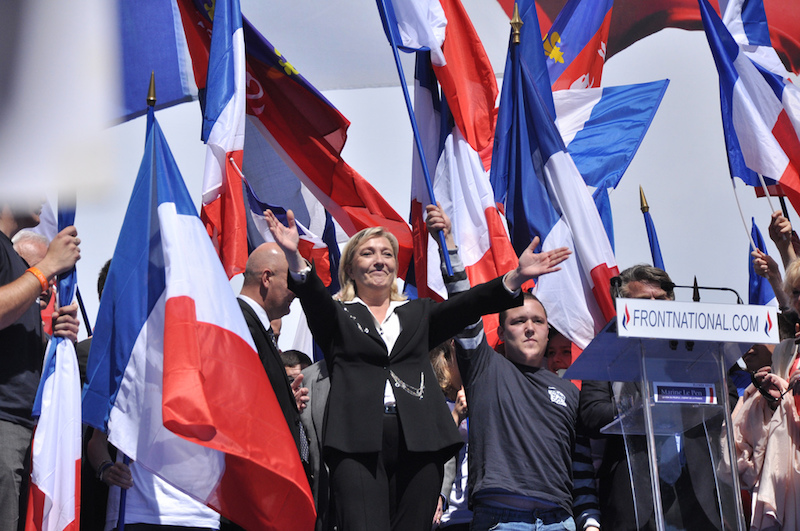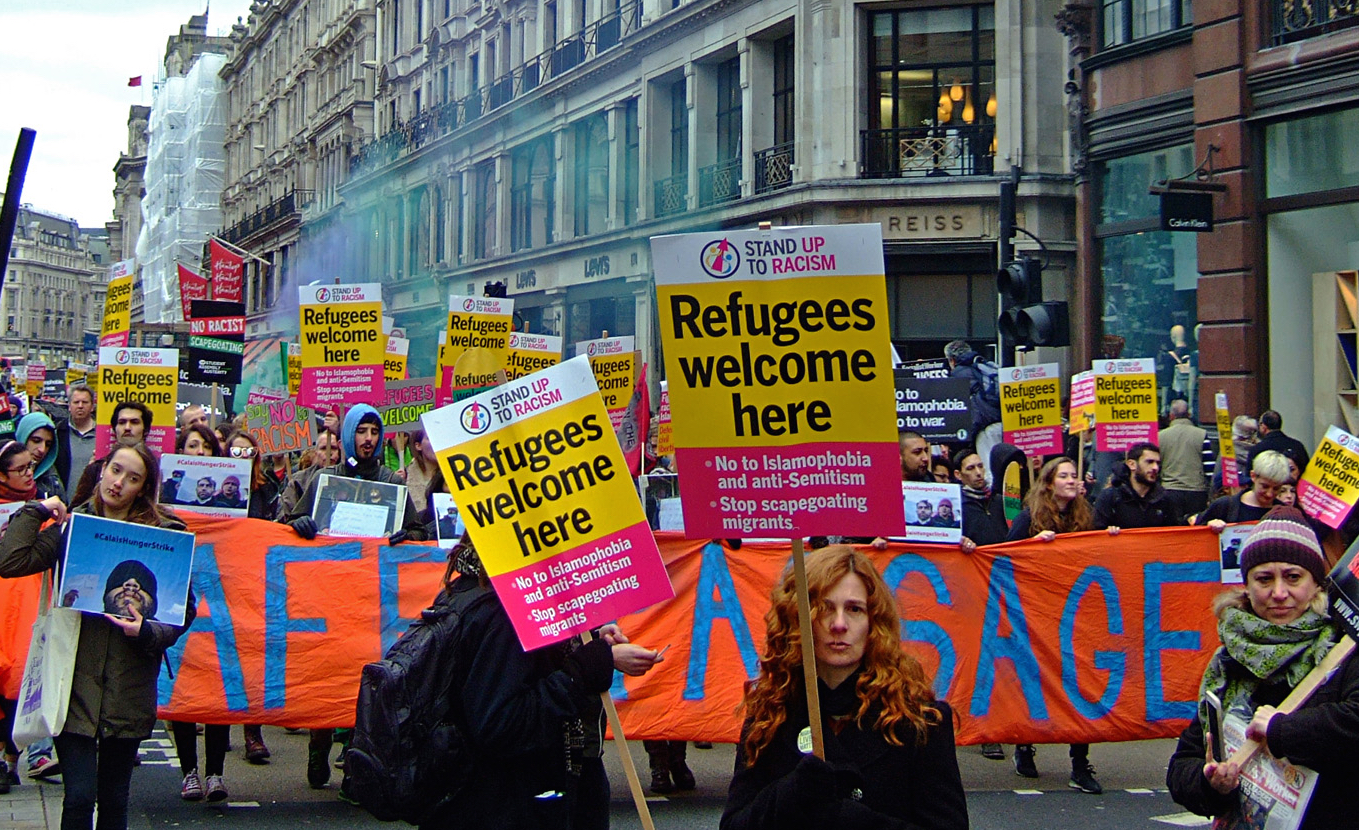In the wake of the Brexit referendum, the European Union seemingly stood united against the British decision to leave. Within Europe itself however, political and social divisions are rising due to the growing popularity of far-right, nationalist anti-immigrant political parties. Promising to reduce the number of admitted immigrants and refugees, they also remain opposed to many of the multilateral institutions and agreements established since the end of World War II, including NATO and the EU. This opposition is arguably based on two things: first, they despise many of the current governing elites, whom they see as being inept cronies of both Brussels and Washington; second, their political ideologies stress that a country’s national interest and constitution are to be the main influence behind domestic and foreign policy.
Perhaps the strongest far-right political movement in Western Europe today is France’s Front National (FN) led by Marine Le Pen. Her party may very well gather one-third of votes in next year’s French presidential election, especially since current President Hollande of the French Socialist Party is considered by his electorate to be incompetent in handling the country’s economic and terror crisis.
Though many are skeptical of the possibility of a governing far-right party in this progressive and multi-racial society, the reality is that the FN has changed. Le Pen has expelled her own father from the party, patriarch and founder of the FN Jean-Marie Le Pen who among other things has called the Holocaust a “detail of history”, and she has sought to campaign on a more centrist platform. In addition, her party is doing its best to seduce France’s millenial “lost generation” with the use of younger, well-educated candidates; Le Pen’s own niece Marion, a 25 year-old lawyer for example, has been compared to Joan of Arc and remains something of a hero in her own rural constituency in the south of France.
Recently, Le Pen has promised to hold a “Frexit” referendum if elected. Is it an empty threat that has no chance of success in a very pro-EU country? Possibly. The fact remains however that Le Pen and the FN will present a strong challenge to both the political and economic status-quo.
Germany, the most influential nation in the EU, is not immune to rising populism either. In fact, this past weekend saw the defeat of Angela Merkel’s Christian Democratic Union in the Mecklenburg-Vorpommern federated state elections. The anti-migrant Alternative for Germany, whose regional candidate Leif-Erik Holm warned of the “spread of Islam”, shot up to a second place finish with 21% of the vote, for a total 18 seats out of 71 in the Landtag (state) diet.
Unsurprisingly, many expressed the typical shock and concern that a far-right party had seemingly won a significant victory in a country known for its welcoming approach. Mecklenburg, however, is a small, economically-deprived rural state with a population of about 2 million; it can hardly be seen as the most accurate test for the 2017 German federal elections. But at the same time Merkel’s popularity continues to decline, in part because of her approach to the migrant crisis. Nonetheless, she remains the face of German optimism and is standing by her government’s decision of having allowed over a million people to enter Germany last year.
Despite the fact that the EU has done relatively well in creating economic growth and socio-political liberty for its citizens, crises usually call traditional systems of governance into question. Far-right nationalism is more appealing in times of economic crisis and this has indeed been the case historically. France’s economy has not improved much since the recession began in the late 2000s, and this frustration has only increased with the recent slew of terrorist attacks. The same cannot be entirely said of Germany which enjoys an unemployment rate of around 4%; in Germany, the central question remains immigration and refugee policy. The far-right has evolved in order to appeal to the typical voter.
Germany and France are the strongest countries in the European Union and are critically important within the NATO alliance. If they were to be governed by parties that reject these modes of multilateralism which have prevailed and thus led to decades of peace and prosperity, consequences would be dire.
Photo: Marine Le Pen Greets Front National Supporters and Party Members at their Annual May 1 Rally (2012), by Blandine Le Cain via Flickr.com. Licensed under CC BY 2.0.
Disclaimer: Any views or opinions expressed in articles are solely those of the authors and do not necessarily represent the views of the NATO Association of Canada.




